
Match Game is an American television panel game show that premiered on NBC in 1962 and has been revived several times over the course of the last six decades. The game features contestants trying to match answers given by celebrity panelists to fill-in-the-blank questions. Beginning with the CBS run of the 1970s, the questions are often formed as humorous double entendres.
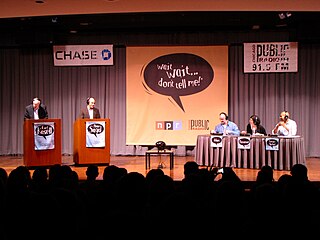
A panel show or panel game is a radio or television game show in which a panel of celebrities participate. Celebrity panelists may compete with each other, such as on The News Quiz; facilitate play by non-celebrity contestants, such as on Match Game and Blankety Blank; or do both, such as on Wait Wait Don't Tell Me. The genre can be traced to 1938, when Information Please debuted on U.S. radio. The earliest known television panel show is Play the Game, a charades show in 1946. The modern trend of comedy panel shows can find early roots with Stop Me If You've Heard This One in 1939 and Can You Top This? in 1940. While panel shows were more popular in the past in the U.S., they are still very common in the United Kingdom.

The $64,000 Question was an American game show broadcast in primetime on CBS-TV from 1955 to 1958, which became embroiled in the 1950s quiz show scandals. Contestants answered general knowledge questions, earning money which doubled as the questions became more difficult. The final question had a top prize of $64,000, hence the "$64,000 Question" in the show's title.

Wait Wait... Don't Tell Me! is an hour-long weekly news radio panel show produced by WBEZ and National Public Radio (NPR) in Chicago, Illinois. On the program, panelists and contestants are quizzed in humorous ways about that week's news. It is distributed by NPR in the United States, internationally on NPR Worldwide and on the Internet via podcast, and typically broadcast on weekends by member stations. The show averages about six million weekly listeners on air and via podcast.
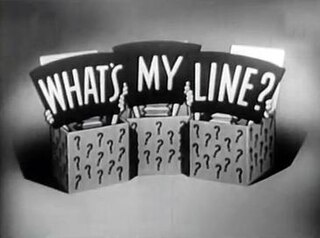
What's My Line? is a panel game show that originally ran in the United States on the CBS Television Network from 1950 to 1967, starting in black and white and later in color, with subsequent U.S. revivals. The game uses celebrity panelists to question contestants in order to determine their occupation. The majority of the contestants were from the general public. However, there was one weekly celebrity "mystery guest" for which the panelists were blindfolded. It is on the list of longest-running U.S. primetime network television game-shows. Originally moderated by John Charles Daly and most frequently with regular panelists Dorothy Kilgallen, Arlene Francis, and Bennett Cerf, What's My Line? won three Emmy Awards for "Best Quiz or Audience Participation Show" in 1952, 1953, and 1958 and the Golden Globe Awards for Best TV Show in 1962.
Twenty questions is a spoken parlor game which encourages deductive reasoning and creativity. It originated in the United States and was played widely in the 19th century. It escalated in popularity during the late 1940s, when it became the format for a successful weekly radio quiz program.

I've Got a Secret is an American panel game show produced by Mark Goodson and Bill Todman for CBS television. Created by comedy writers Allan Sherman and Howard Merrill, it was a derivative of Goodson–Todman's own panel show, What's My Line?. Instead of celebrity panelists trying to determine a contestant's occupation, however, as in What's My Line, the panel tried to determine a contestant's secret: something that is unusual, amazing, embarrassing, or humorous about that person.
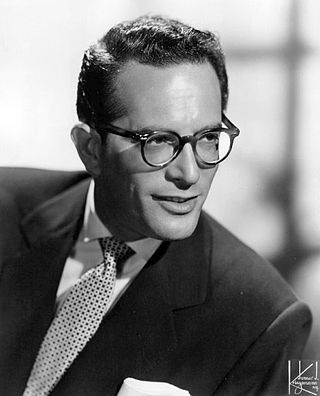
Robert Q. Lewis was an American radio and television entertainer, comedian, game show host, and actor. Lewis added the middle initial "Q" to his name accidentally on the air in 1942, when he responded to a reference to radio comedian F. Chase Taylor's character, Colonel Lemuel Q. Stoopnagle, by saying, "and this is Robert Q. Lewis." He subsequently decided to retain the initial, telling interviewers that it stood for "Quizzical."
Information Please is an American radio quiz show, created by Dan Golenpaul, which aired on NBC from May 17, 1938, to April 22, 1951. The title was the contemporary phrase used to request from telephone operators what was then called "information" and later called "directory assistance".

It Pays to Be Ignorant was a 1942–1951 radio comedy show which maintained its popularity during a nine-year run on three networks for such sponsors as Philip Morris, Chrysler, and DeSoto. The series was a spoof on the academic discourse on such authoritative panel series as Quiz Kids and Information Please. At the same time, the beginning of the program parodied the popular quiz show Doctor I.Q. With announcers Ken Roberts and Dick Stark. The program was broadcast on Mutual from June 25, 1942 to February 28, 1944, on CBS from February 25, 1944 to September 27, 1950 and finally on NBC from July 4, 1951 to September 26, 1951. The series typically aired as a summer replacement.
Winner Take All is an American radio-television game show that ran from 1946 to 1952 on CBS and NBC. It was the first game show produced by the Mark Goodson-Bill Todman partnership. The series was originally hosted by Ward Wilson, but is best known for being the first game hosted by Bill Cullen.
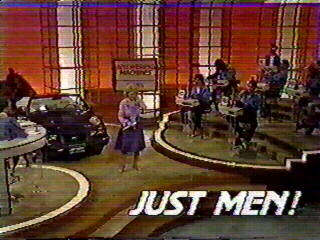
Just Men! is an American game show that aired on NBC Daytime from January 3 to April 1, 1983. The show starred Betty White, who won an Emmy award for her work on the show, with Steve Day announcing. It pitted two female contestants who were asked to predict answers to a series of yes/no questions posed previously to a panel of seven male celebrities.
Life Begins at Eighty is an American panel discussion television series which aired from January 1950 to February 1956.
Down You Go is an American television game show originally broadcast on the DuMont Television Network. The Emmy Award-nominated series ran from 1951 to 1956 as a prime time series primarily hosted by Dr. Bergen Evans. The program aired in eleven different timeslots during its five-year run.
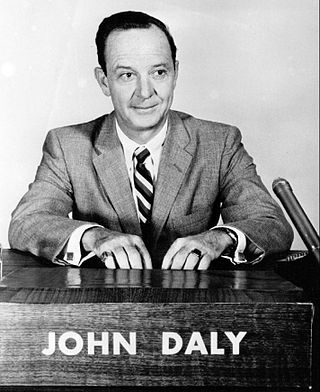
It's News to Me is an American panel game show produced by Mark Goodson and Bill Todman for CBS Television. It was a derivative of Goodson-Todman's own panel show What's My Line?. Originally aired as a one-time special on May 11, 1951; It debuted as a series July 2, 1951 to August 27, 1954.

Conly John Paget Dease was a prominent Australian radio presenter and quiz show host at 2GB, Sydney, and through it, the Macquarie Radio Network from 1935 until at least 1969.
@midnight with Chris Hardwick is an American late night Internet-themed panel game show, hosted by Chris Hardwick, that aired Monday through Thursday nights between October 21, 2013, and August 4, 2017, on Comedy Central. It was syndicated internationally in Australia on SBS2 and The Comedy Channel, in the United Kingdom on Comedy Central Extra, and in Canada formerly on MuchMusic and later on The Comedy Network.
Who's Whose is a panel quiz television game show that ran on the Columbia Broadcasting System (CBS) television network. It premiered as a TV series on June 25, 1951, and is noted for being one of the first television series to be dropped after one episode.
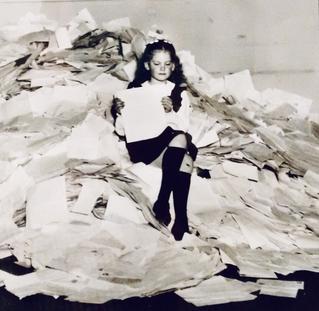
Ruth Duskin Feldman was a Quiz Kid, author and editor. She was a regular panelist on the Quiz Kids radio show from age 7 until age 16. She wrote and edited several books, including one about her experience on the show.
Anyone Can Win is an American television quiz program that was broadcast on CBS from July 14, 1953, until September 1, 1953.













